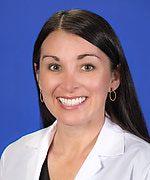
In a recent segment of her interview with HCPLive, Dr. Shaina Willen from UC Davis Health elaborated on the advancements in therapies for sickle cell disease, as highlighted in her ‘Pediatric Year in Review’ presentation at the American Thoracic Society (ATS) 2025 International Conference. A renowned specialist in pediatric hematology/oncology and pediatric pulmonology, Dr. Willen addressed critical barriers that hinder access to these vital therapies for many patients suffering from this chronic condition.
One of the primary concerns raised by Dr. Willen is the limited access to approved therapies, particularly for children. Currently, the U.S. Food and Drug Administration (FDA) has established the minimum age for approval of certain sickle cell treatments at 12 years. According to Dr. Willen, this restriction presents a significant challenge, especially for younger children who may experience severe complications from the disease. Ongoing studies aim to extend these approvals to younger populations, but, as of now, therapeutic options remain scarce for those under the age threshold. Furthermore, the high costs and complex nature of these treatments often confine their availability to large academic medical centers, exacerbating the inequality in access to care.
Dr. Willen underscored the logistical difficulties faced by families in accessing these therapies, which often require extensive travel and a lengthy preparation process, including stem cell collection. The challenges become even more pronounced when considering the global landscape of sickle cell disease. Approximately 20 million children with the condition reside in Sub-Saharan Africa, where access to advanced therapies remains virtually nonexistent. Dr. Willen emphasized that while advancements in treatment options are emerging in developed nations, the vast majority of patients in other parts of the world continue to face significant barriers to care.
In response to whether sickle cell disease treatments have reached a pivotal point due to these emerging therapies, Dr. Willen expressed cautious optimism. Though new treatments, including gene therapy, herald a promising future, she noted that widespread implementation faces hurdles, particularly regarding access and the integration of existing therapies. “For now,” she stated, “we’re still a ways away from fundamentally shifting the disease landscape for the majority of children with sickle cell disease.”
Dr. Willen concluded her insights with an affirmation of the excitement surrounding the ongoing research and development in this field, urging the medical community and policymakers to prioritize access and equity in sickle cell disease treatment. For those seeking more information on Dr. Willen’s talk and the ongoing progress in sickle cell therapies, the full interview segment can be found on the HCPLive platform, alongside comprehensive coverage of the ATS conference.
Note: Quotes from the interview have been edited for clarity. Dr. Willen reported no relevant disclosures related to her statements.


